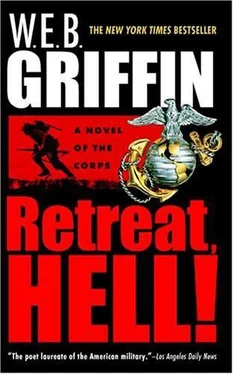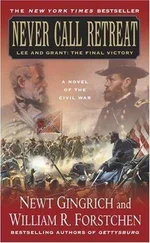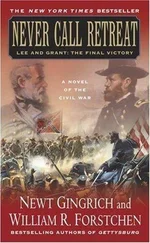He had. At Johnson's orders, there were two battalions (instead of the three considered necessary) in most of the U.S. Army's regiments. And there were two regiments (instead of three) in all but one of the divisions.
The Secretary of Defense is, with the advice and consent of the Senate, appointed by the President. Once Louis Johnson had been confirmed, President Truman was responsible for his actions, good or bad.
The blame for the inadequate equipment in the Eighth U.S. Army — and just about everywhere else — has to be laid on the desk of President Harry S Truman, right beside the small sign reading "The Buck Stops Here" that he kept there. There were, of course, extenuating circumstances.
Congress, for one, was not in the mood to appropriate the billions of dollars it would have cost to bring the armed forces back to the state of preparedness they had been in five years before, when, on 2 September 1945, MacArthur had accepted the unconditional surrender of the Japanese Empire on the battleship USS Missouri in Tokyo Harbor.
And Korea was almost at the bottom of the list of problems with which President Truman had to deal on a daily basis. Most of these problems had to do with thwarting Soviet mischief in Europe, the Near East, and even Africa.
The Soviets hadn't done nearly so well in the Far East, and the credit for that unquestionably belongs to Douglas MacArthur, who had flatly refused to permit the Soviets to participate in the occupation of Japan.
MacArthur had also successfully sown the seed of democratic government in the mind of the Japanese people, and taken wide and generally successful steps to get the war-ravaged Japanese economy moving.
As far as the disgraceful condition of the Eighth United States Army in Japan was concerned, one has to remember that all armies are rank conscious.
General of the Army Douglas MacArthur was not only the senior officer on active duty, but he had been Army Chief of Staff when the general officers in the 1950 Pentagon had been captains and majors. In World War II, MacArthur had been a theater commander, commanding more men of all services than there were now in 1950 in all the armed forces of the United States.
There are annual inspections of every organization in the Army, ending with a conference during which the inspectors point out to the commander where he is doing what he should not be doing, or not doing what he should be doing.
It is very difficult to imagine any officer, even one with a galaxy of stars on his epaulets, pointing out to General of the Army Douglas MacArthur, Supreme Commander, Allied Powers, and Commanding General, United States Far East Command (FECOM), where he was doing something wrong, or where he had failed to do something he should have been doing.
And none did.
Because of the International Date Line, when it is Sunday in Korea it is Saturday in New York City and Washington. The first word of the attack reached the Pentagon about eight o'clock Saturday night, and at about the same time, the United Nations Commission in Korea managed to get UN Secretary General Trygve Lie on the telephone at his estate on Long Island.
Lie blurted, "This is war against the United Nations."
President Truman learned of the attack at his home in Independence, Missouri, early Sunday morning and immediately boarded his airplane, the Independence, to fly back to Washington.
Lie convened an emergency meeting of the UN Security Council at two o'clock Sunday afternoon. The Soviet Union, trying to force the UN into seating Red China — and expelling Chiang Kai-shek's Chinese Nationalists — was refusing to attend Security Council meetings and did not participate.
This was a blunder on their part. Had they attended, the Soviet Union could have vetoed the resolution the UN passed. The resolution stated that the attack constituted a breach of the peace, ordered an immediate cessation of hostilities and the immediate withdrawal of North Korean forces from South Korea, and called upon all UN members to "render every assistance to the UN in the execution of this resolution."
At about six o'clock that evening, in Washington, in Blair House — across Pennsylvania Avenue from the White House, which was being repaired — President Truman met with the more important members of his staff.
They quickly and unanimously agreed with Truman that the interests of the United States demanded that immediate action be taken to stop Communist aggression in Korea.
A little after ten-thirty Sunday evening, two teletype orders from the Chairman of the Joint Chiefs of Staff were sent to the Far East.
The first, to the Commanding General, FECOM — MacArthur — authorized him to send ammunition and military equipment to Korea, to prevent the loss of Seoul; authorized him to provide ships and aircraft to evacuate American citizens from Korea; and directed him to send a "survey party" to Korea to see what was going on.
It is germane to note that until MacArthur got that teletype order he had no official role in Korea. The former Japanese Protectorate of Korea, now the Republic of South Korea, was an independent nation.
The second order went to the United States Seventh Fleet. It was to immediately sail from its several major home ports — the largest were in the Philippines and Okinawa — for the U.S. Navy Base at Sasebo, Japan. On arrival, the warships would come under the operational control of the Commander, U.S. Naval Forces, Far East.
Since Commander, Naval Forces, Far East, was under FECOM, that meant they would be under MacArthur's command.
MacArthur immediately ordered the U. S. Far Eastern Air Force — already under his command — to Korea to protect the evacuation of American civilians and dependents from Inchon and Pusan.
Over Inchon, the American jets were fired upon by three Russian-made YAK fighters, which the Americans promptly shot down.
It was the first American victory in the Korean War, and much time would pass before there was another.
Outnumbered, outgunned, and in many cases poorly led, most of the South Korean Army simply began to disintegrate in the face of the North Korean attack.
The Survey Party — thirteen officers and two enlisted men under Brigadier General John H. Church — took off from Tokyo as soon as it could be formed. While in the air, they received two messages, the first saying it would probably be wiser not to try to land at Seoul's Kimpo Airfield, and suggested the field at Suwon, thirty miles or so south of Seoul, as an alternate. The second said that the Pentagon had given MacArthur command of all U.S. Forces in Korea, and the Survey Party had been rather grandly redesignated as "GHQAdvance Command and Liaison Group in Korea."
ADCOM landed at Suwon about 1900 27 June. Colonel William H. S. Wright, the KMAG Chief of Staff, who met them, suggested that it probably would be better to wait for morning to drive into Seoul than to try to do so in the hours of darkness.
At 0400 the next day, two KMAG officers drove into Suwon and reported to General Church that the bridges across the Han River had been blown and that Seoul was in the hands of the enemy.
Church radioed MacArthur that U.S. ground troops were going to be necessary if the United States intended to push the North Koreans back across the 38th Parallel. The reply was a query: "Is Suwon safe for a high-ranking officer to land there tomorrow?"
Читать дальше












